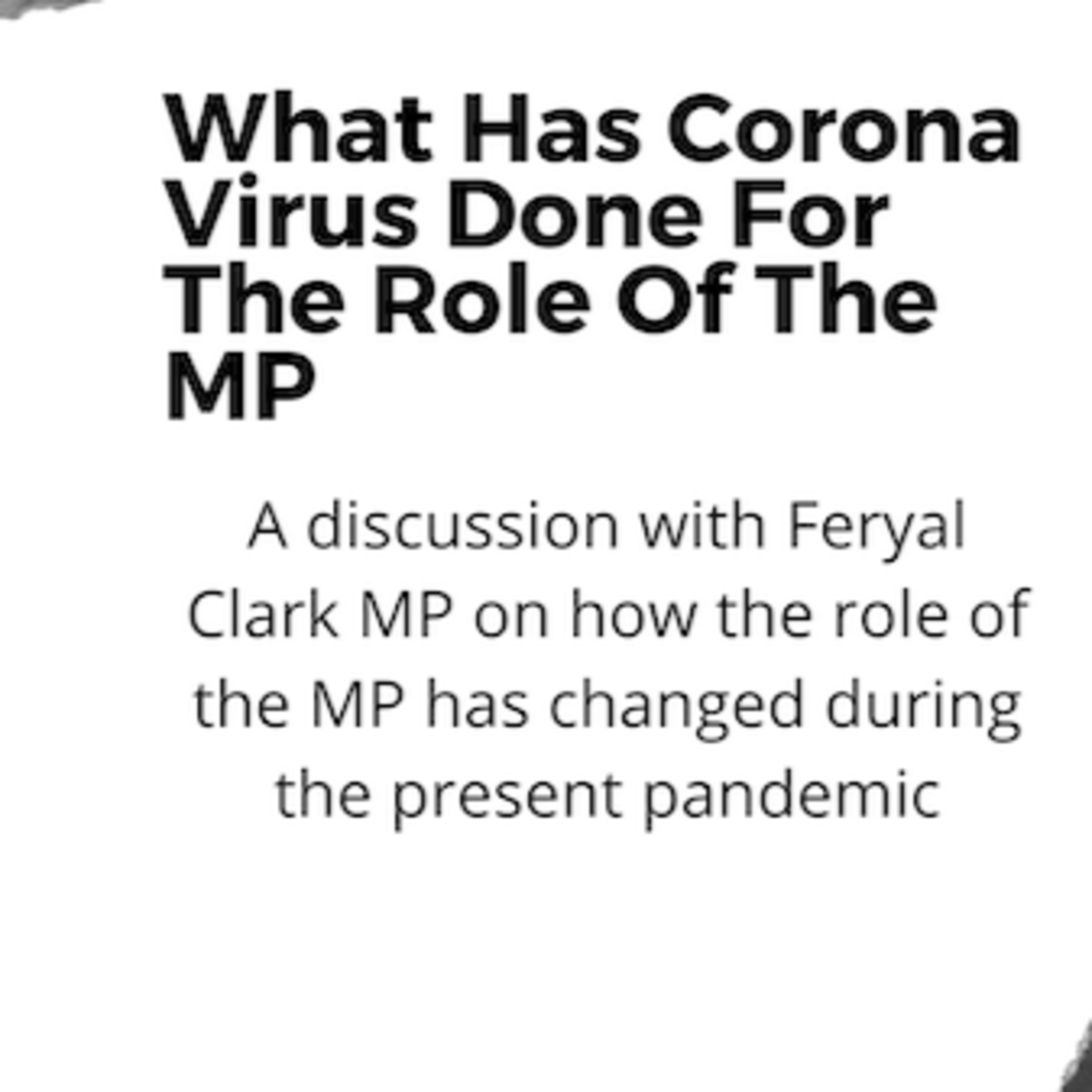What Has Corona Virus Done For The Role Of The MP

In this Podcast we talk to Feryal Clark MP about how the pandemic of Covid 19 has affected her work both as a case worker for her constituents and as a scrutiniser of Government.
\nOver time the role of an MP has changed . The traditional role of an MP is to represent their constituents in the House of Commons and hold the government to account \u2013 participating in debates, asking questions, and voting on legislation. If we look back to even a couple of decades ago, MPs were not expected to engage much with their constituents. Many felt they didn\u2019t have to answer letters, hold surgeries, or assist with complex issues \u2013 they just had to turn up at the Commons when it was sitting, make sure they kept their whips happy, and return to their constituencies when there was an election.
\nNowadays, the role of an MP has expanded dramatically. Every MP is now expected to do casework \u2013 answering queries from constituents and helping to fix their problems. Not doing so is not only viewed as electorally damaging \u2013 people are less likely to vote for an MP who doesn\u2019t help them \u2013 but also as undermining the ethos of public service that forms the basis of the job. Those who run to become an MP know that they are expected to help people as well as perform their democratic duties, and a great many of those who are elected have a true commitment to doing so.
\nIn this period of the corona pandemic the role of the MP has changed yet again with problems arising that they rarely faced before and having to respond to these problems from home. At the same time they have not been in the House of Commons to hold the Government to account and their traditional role initially began to slip considerably.
\nHow has this changed the role of the MP and will some of these changes have lasting effects?